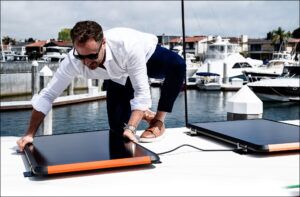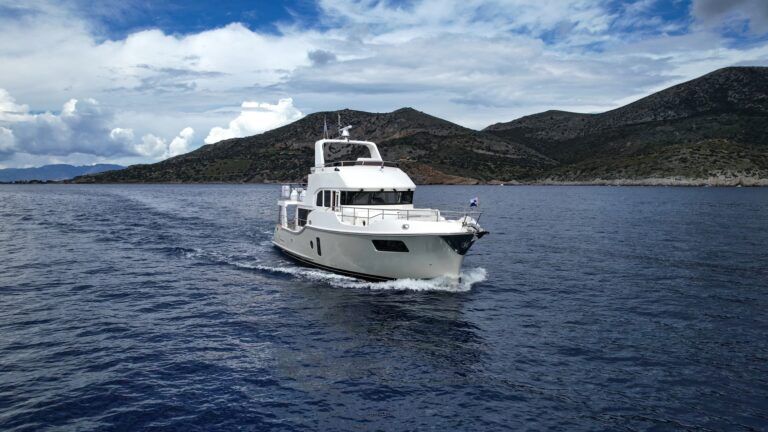
The Bahamian government has backed down, deciding not to implement higher fees for cruising permits, according to the Bahamas Local news website. Here’s what Bahamas Local said:
As tourism stakeholders in the marina sector and beyond are greeted with relief signs that a planned increase of cruising permit fees for boats had been reversed, Minister of State for Finance Michael Halkitis announced that there was never any intention to increase the fees on July 1, stating that the higher charges were instead unilaterally implemented by customs officials after a “misunderstanding”.
Marina operators expressed relief yesterday over what Guardian Business was informed was the government’s decision to reverse increases in cruising fees for boats entering The Bahamas. Operators such as Sea Spray Resort and Marina Manager Junior Menard suggested that moving ahead with the fee hikes would have had a crushing effect on a long-awaited “rebound” in the marina sector seen this summer for the first time in six years.
Marina operators and those who rely on tourists arriving by boat into The Bahamas for their livelihoods had been up in arms when the start of the new fiscal year, July 1, brought with it unanticipated increases in the cost of cruising for arriving boats.
New fee regimes saw the cost of permits jump from a flat $300 for all boats entering the country, to $300 for boats 35 feet and under and $400 for boats over 35 feet. Extensions to cruising permits after 12 months rose from $500 to $1,000 for an additional year.
However, when sought for comment on the reversal of the fees yesterday, Halkitis informed this newspaper that in fact the government had never sought to increase the cost of cruising permits on July 1 and all those who have paid a higher fee since the beginning of the month can now receive a refund.
“[Customs] had proposed it to the government and we decided no, we’re not going to implement it. They implemented it; we told them no. That was an error: no one should be charged an increased fee.”
Halkitis said it is not unusual for the Department of Customs to propose changes in taxes or fees to the Ministry of Finance if it considers that they may be overdue for an adjustment, however, in this case that proposal was not approved by the government.
He added, however, that the government is indeed interested in consulting with the marina sector and others over possible increases but will not take any action until a dialogue has been had.
“We want to put together a committee of the government who will be comprised of various ministries, Customs, the port, etcera, and we will consult with the industry groups on some things where we propose fees can be increased. You have the marinas who are concerned about how it will affect their livelihoods, and then you have others who feel that those who are cruising should be paying more for using our resources. Also, if you haven’t changed the fee in 30 years, the cost of administering these things to the government has not kept up with the times.”
Menard, who, like several marina operators that spoke with Guardian Business, was under the impression that the fee increases were planned by the central government, said: “We are just now rebounding from a downturn and the government if they had implemented those would make it go back to what it was for the last six years when it was all cut backs and adapting to rough times. We’ve finally got a full marina for these four months of the year and (the increases) would have totally defeated that.”
“We were so shocked and dismayed at the fact that they wanted to do this without consulting with us. It would have had a tremendous effect.”
Participants in sectors from marinas to aviation, banking, automotive and food have been vocal in expressing their disappointment in tax and fee increases that were imposed on July 1 as part of government efforts to increase revenue in the 2013/2014 budget cycle.
Overall, Halkitis said that the government is confident that the adjustments, which were made are “very moderate and won’t cripple anybody”.
“On the one hand government needs to raise revenue but on the other hand we can’t choke off the economy. We think what we did was reasonable.”







